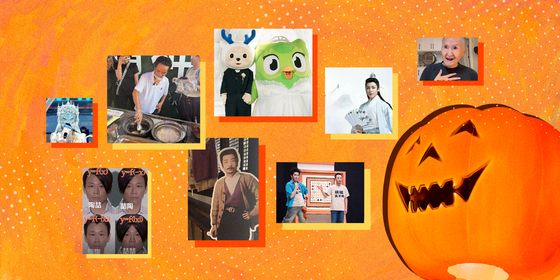From “active losers” to “pickled vegetable fish”—here are TWOC’s top slang picks of the year
As 2019 draws to a close, the media’s usual array of year-end lists and round-ups are open for business. In the spirit of variety, The World of Chinese has endeavored to chronicle the countdowns that others don’t.
Internet slang is a perennial favorite topic of year-end lists: the Ministry of Education (along with TWOC’s parent company, The Commercial Press) even publishes an annual index on the most relevant words on the street, the Chinese Pandian, as does the Weibo Association of the Zhejiang University School of Communication.
Based on these sources, as well as our own “Street Talk” column, TWOC editors present the following picks for the most interesting and most creative slang of the year:
积极废人 Active loser
You don’t want to start off 2020 like one of these: 积极废人 refers to a person who always sets positive goals—say, in the form of New Year’s resolutions—but has never been able to achieve them yet.
Honorable mention: 光想青年 (“Merely thinking youths”), a term for idle young dreamers.
断舍离 Declutter
Why not make this resolution instead? 断舍离 (literally “Cut, abandon, leave”) comes from the Japanese concept of danshari, which is written with the same characters. It refers to throwing away unnecessary and outdated things—and crucially, severing one’s emotional attachment to them—in order to live a simpler and less cluttered life.
The deadly culture of overwork—9 a.m. to 9 p.m., six days a week—in China’s IT and other sectors has spawned a slew of commentary from Chinese media, and helped popularize related terms like 社畜 (“corporate livestock”), though there are still shirkers aplenty.
上头 Intoxicated
Originally referring to the dizziness and flushed face one gets from drinking alcohol, 上头 was picked up first by gamers, then fans of TV dramas, to describe their obsession.
是个狼人 Such a werewolf
This phrase first appeared in a Weibo post in August 2018 to describe an extreme badass. It comes from an older slang phrase, 是个狠人 (“such a ruthless person”), used to describe a badass. With the addition of a stroke on top of the 狠, the badassery gets upgraded to supernatural levels.
酸菜鱼 Pickled vegetable fish
酸菜鱼 is a classic dish of Chongqing cuisine, but has evolved into a pejorative for someone who is jealous (酸, “sour”), incompetent (菜 from 菜鸟, or “rookie”), and redundant (鱼, homophone of 余, or “leftover”). Usually heard during a breakup, it’s an upgrade to Chinese Pandian’s 柠檬精 (“lemon spirit”), slang for a person who gets jealous easily.
盘它! Palm it!
Originally associated with wenwan, the practice of rolling walnuts (or other objects) in one’s palm to improve blood flow, 盘 is now a way to express either one’s affection or hatred toward something.
可/🉑️ ‘K
This slang character (or symbol), meaning “okay” or “yes,” is usually used in a reply: to make a promise to someone, express approval of something, or denote satisfaction.
O! M! G!
The signature catchphrase of Taobao’s over-enthusiastic live-streamer “Li Jiaqi, “O! M! G!” or “OH MY GOD!” is used to emphasize that a product has high quality and is worth one’s dime, as in Li’s line: “OMG! 我的妈呀!这个颜色也太好看了吧!(OMG! This color is too pretty!)”













